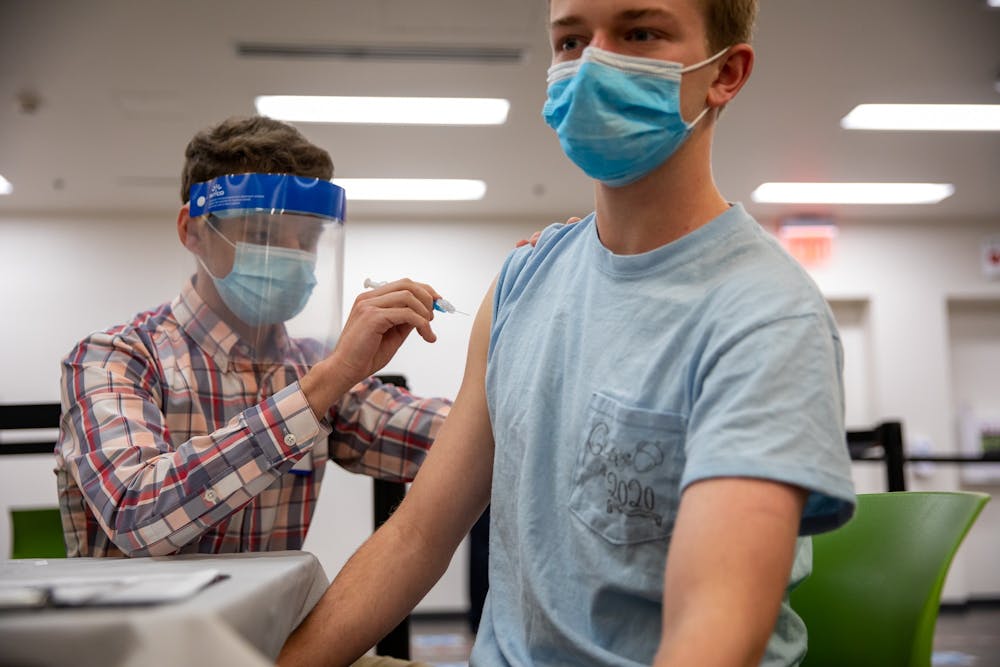The U.S. Food and Drug Administration announced on Oct. 12 that the monovalent Pfizer-BioNTech COVID-19 vaccine has been replaced by the bivalent Pfizer-BioNTech and Moderna COVID-19 vaccines as the authorized booster dose for children.
The monovalent COVID-19 vaccine contains a component from the original strain of COVID-19, while the bivalent vaccine contains both an mRNA component of the original strain and an additional mRNA component to protect against newer Omicron variants of the virus.
Moderna’s vaccine has been approved for children as young as 6 years old while the Pfizer vaccine has been authorized for children as young as 5.
Megan Stauffer, a mother of three and the president of the Chapel Hill/Carrboro Mothers Club, said that before her children were vaccinated, they were rarely out in public.
After getting her children vaccinated, Stauffer said that they were able to start having friends over again, but adjusting to their return to school was difficult. She said the pandemic might have forced them to grow up.
“I think they just lost a little bit of innocence,” Stauffer said. “There’s more fear than they probably would have had.”
The two new vaccines are based on the FDA’s analysis of immune response and safety data from previous clinical studies.
Dr. David Weber, a professor of medicine, pediatrics and epidemiology at the UNC School of Medicine, said that multivalent vaccines are very common and that it’s not unusual for people to need periodic boosting to protect against illnesses.
The Centers for Disease Control and Prevention said individuals who receive the bivalent vaccine may experience similar side effects to those who received the monovalent vaccine. These side effects include tiredness, headache, muscle pain and underarm swollen lymph nodes.




